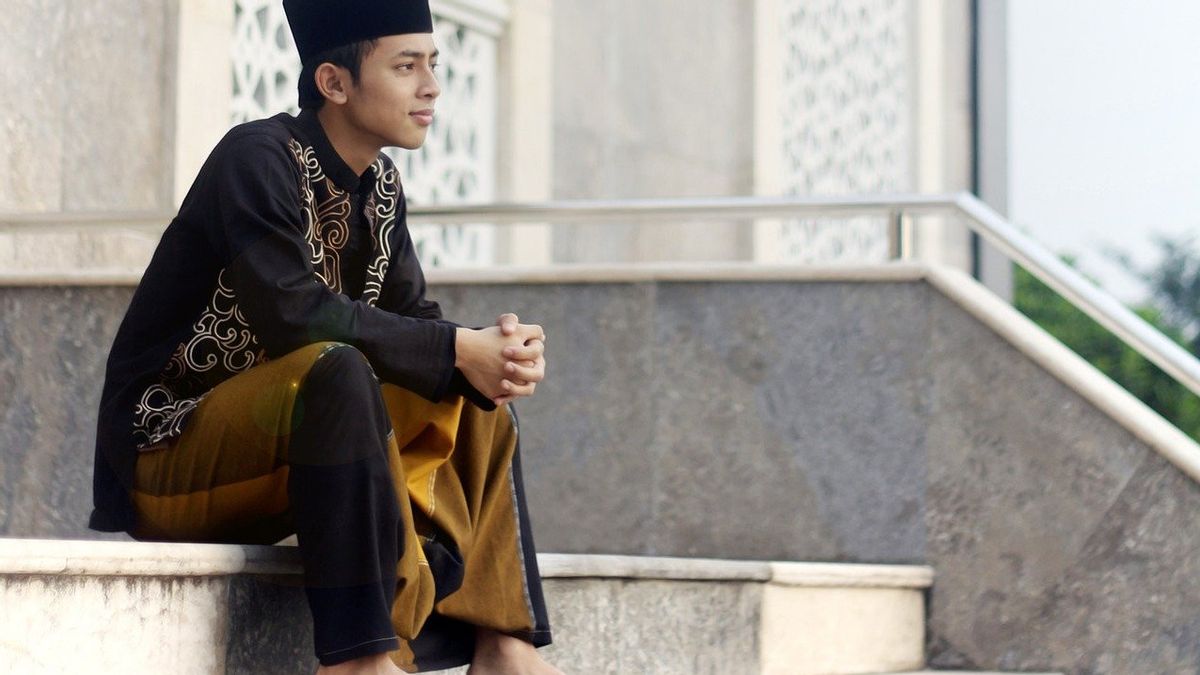JAKARTA - The West Java Provincial Government issued a West Java Governor's Decree (Kepgub) No: 443 / Kep.321 Hukham / 2020 concerning Health Protocols for the Prevention and Control of COVID-19 in the Pondok Pesantren Environment.
The decree adopted on June 11 contains 15 public health protocols; 6 protocols for arrival of kiai, santri, asatidz , and other parties; 7 protocols in mosques; 9 protocols at the learning site; 14 protocols in kobong (santri lodging); 9 meal protocols; 8 protocols in the canteen; and 3 protocols when there is indication of COVID-19 in pesantren.
According to West Java Deputy Governor Uu Ruzhanul Ulum, the West Java Governor's Decree regarding the health protocol at the Islamic boarding school in the normal phase in West Java has been agreed upon by the kiai and board of the boarding school.
"This rule was not issued suddenly, but since the draft was made, we have continued to convey it to the kiai and board of Islamic boarding schools in West Java," said Kang Uu in his official statement quoted from the West Java Provincial Government website , Monday, June 15.
In West Java Governor Decree No: 443 / Kep.321-Hukham / 2020 concerning Health Protocols for the Prevention and Control of COVID-19 in Islamic Boarding School Environments, general protocols that must be met are wearing masks, limiting activities by keeping a distance, and providing a place to wash hands with running water with soap.
In addition, the board of the boarding school must provide socialization media related to health protocols, routinely maintain the cleanliness of the facilities at the boarding school, and make a statement of ability to comply with health protocols addressed to the regent / mayor respectively.
In places of worship, the protocols that must be followed are not using carpets / prayer mats, prayer mats, and public sarongs. When praying, the congregation must maintain a minimum distance of 1 meter and avoid physical contact.
Meanwhile, in the kobong or where the students stay, what must be adhered to in addition to general protocol is not sharing mattresses between the students, prohibiting students from sharing used food and drinks, and prohibiting students from using clothes, toiletries, worship and eating utensils together.
If there is an indication of COVID-19, the board of the boarding school must bring the indicated person to a health service facility. If referred, the boarding school administrator must clean the person's bed and equipment. In addition, those who come into contact with the indicated person must isolate for 14 days.
Kang Uu said, all protocols in the Governor's Decree were intended for both salafiyah (no school) and khalafiyah (with schools) boarding schools in West Java. "Because the core of the pesantren is the same as a whole, there are students who are murobatoh (stay long) at the pesantren," said Kang Uu.
Regarding sanctions, this is not regulated in the norms of the protocol, but in the example of the third item of statement letter format and is a form of the pesantren's commitment to implement the health protocol so as to ensure the safety of kiai, santri, asatidz and other parties active in the boarding school
Kang Uu also emphasized that the health protocol in the pesantren was made for the good or the benefit of the people. "Don't be muddled, there is a new cluster (COVID-19) in West Java from Islamic boarding schools," he said.
The English, Chinese, Japanese, Arabic, and French versions are automatically generated by the AI. So there may still be inaccuracies in translating, please always see Indonesian as our main language. (system supported by DigitalSiber.id)













